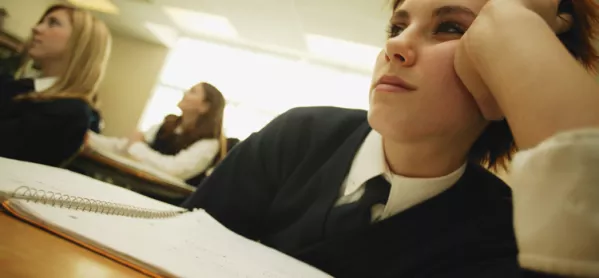Giving parents more choice over the type of school their children can attend raises academic attainment but leads to more unhappy pupils, researchers have found.
This is because schools that face greater competition for pupils are more likely to adopt teaching methods which, although academically effective, are not necessarily inspiring or enjoyable for children, according to academics from the London School of Economics and Political Science (LSE).
These methods include “boring” teaching styles involving drill and repetition, more homework, hierarchical pupil-teacher relations and increased pressure from parents, according to a study published in the Economics of Education Review.
‘Sacrificing pupil enjoyment’
Using pupil data on 15-year-olds across 34 Organisation for Economic Cooperation and Development countries, including the UK, the researchers analysed pupil wellbeing and academic efficiency.
They found that the inclusion of “autonomous” schools in education systems - such as academies, faith schools and private schools - increases choice and therefore competition, which sharpens schools’ focus on academic achievement but also has negative effects on pupil wellbeing.
The study suggests that there is a “trade-off” between pupil attainment and pupil wellbeing, which it says policymakers should be mindful of.
Author of the study Gabriel Heller-Sahlgren said: “The idea that effective learning and pupil enjoyment go hand in hand is a cornerstone of modern educational theory. Yet there is little evidence supporting it.
“On the contrary, research suggests that effective learning often involves activities, such as drill and repetition, which many would describe as boring and tough.
“It is, therefore, not surprising to find that interventions that raise academic achievement often have negative effects on pupil happiness. This shows that the concept of trade-offs must be taken seriously also in education.”





